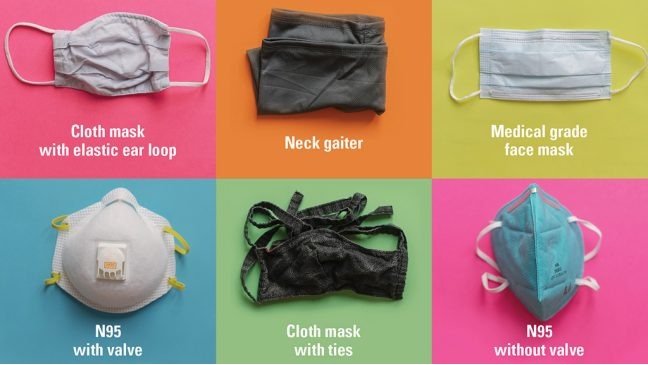Understanding the Different Types of Face Masks for Hygiene

Face masks have been traditionally worn in Eastern Asian countries during illness and the cold/flu season. This method began being adopted by other countries to limit the rate of infection in the fight against COVID-19. Individuals become infectious 2.5 days before the onset of symptoms which make masks an important preventative measure. To maintain hygiene, the public has been using cloth masks, face shields, and one-use face masks. Face masks have been produced in many varieties depending up on use and purpose.
Uses of Face Masks
Face masks serve multiple purposes beyond just protecting against viruses. Their primary function is to act as a barrier against airborne contaminants, dust, and harmful microorganisms. They are commonly used for:
- Personal Hygiene and Safety: Preventing exposure to dust, pollutants, and allergens.
- Occupational Protection: Safeguarding workers in industries where airborne particles and hazardous substances are present.
- Public Health Measures: Reducing the transmission of airborne diseases.
- Environmental Protection: Protecting individuals from pollution in urban areas with high levels of smoke and dust.
Industries Where Face Masks Are Used
Face masks are utilized across various industries where hygiene and safety are paramount. Some key industries include:
- Healthcare: Used by doctors, nurses, and healthcare professionals to prevent infections.
- Food Processing and Hospitality: Ensuring food hygiene by preventing contamination.
- Construction and Manufacturing: Protecting workers from dust, fumes, and chemical exposure.
- Pharmaceutical Industry: Maintaining sterility in drug manufacturing environments.
- Cosmetic and Beauty Industry: Used by salon professionals during treatments.
- Agriculture and Farming: Shielding workers from pesticides and airborne particles.
- Chemical Industry and Laboratories: protecting from splash, fumes, drugs.
Protection from Face Masks
Face masks provide protection against various harmful elements, including:
- Viruses and Bacteria: Reducing the risk of infection and disease transmission.
- Air Pollution: Filtering out harmful pollutants, smoke, and toxic gases.
- Dust and Allergens: Preventing inhalation of fine dust and allergens.
- Chemical Fumes: Shielding workers from inhaling hazardous industrial chemicals.
- Respiratory Infections: Lowering the chances of respiratory illnesses caused by airborne particles.
Types of Face Masks
Face masks come in different types, designed for specific needs:
- Cloth Masks: Washable and reusable, primarily used for basic protection.
- N95 Respirators: High-filtration masks that protect against fine particles and airborne viruses.
- KN95 and FFP2/FFP3 Masks: International variants of N95, offering similar protection.
- Activated Carbon Masks: Filtering pollutants and odors, commonly used in urban environments.
- Dust Masks: Used in construction and industrial settings to prevent inhalation of dust and debris.
Some call these face masks as FFP1, FFP2, and FFP3.
FFP stands for Filtering Face Pieces.
- FFP 1 – It offers least level of protection against non-toxic particulates as it is made of the least amount of filter material.
- FFP 2 This provides a modest level of protection against deleterious and mutagenic particles prevalent in the mining and metal industries, such as cotton dust, brake dust, granite dust, lead dust, fume, softwood dust, or hay.
- FFP 3 – This mask provides the highest level of protection against asbestos, bacteria, virus and also radioactive particles. The filter material of this type is so thick that an exhalation valve is always fitted.
Materials Used in Face Masks
Face masks are made from a variety of materials, depending on their type and intended use:
- Non-Woven Polypropylene (PP): Used in disposable surgical and N95 masks due to its filtration efficiency.
- Cotton and Polyester Blends: Common in reusable cloth masks for breathability and comfort.
- Activated Carbon: Used in masks designed to filter pollutants and odors.
- Silicone and Rubber: Found in reusable respirators with replaceable filters.
- Melt-Blown Fabric: A crucial component in high-filtration masks like N95 and KN95.
How to Choose a Face Mask for Various Industries?
Different industries require different types of face masks for optimal protection:
- Healthcare: N95 respirators or surgical masks for infection control.
- Construction and Manufacturing: N95 or dust masks to protect against fine particles.
- Food Industry: Disposable surgical masks to maintain hygiene.
- Agriculture: Respirators with P100 or N95 filters for pesticide protection.
- Cosmetic and Beauty Industry: Lightweight disposable or reusable masks to maintain cleanliness.
Summing Up


